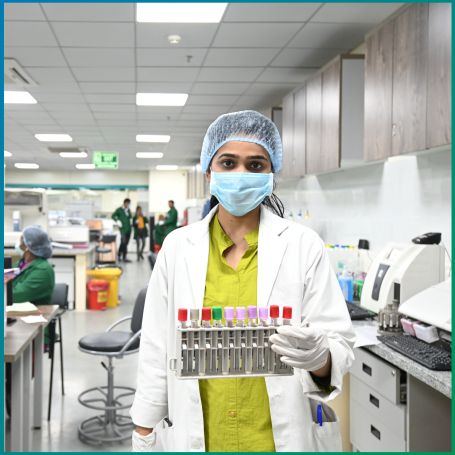
Gram Stain-Peritoneal Fluid is a test that identifies bacterial infections in abdominal fluid, aiding in the diagnosis of conditions like peritonitis.


The Gram Stain - Peritoneal Fluid test is a diagnostic tool used to detect and identify bacteria in peritoneal fluid, the fluid within the peritoneal cavity that surrounds the abdominal organs. This test is commonly performed when there is suspicion of peritonitis, an infection of the peritoneum, often caused by bacteria. The Gram stain helps categorize the bacteria into Gram-positive or Gram-negative types, which can provide crucial information for starting appropriate antibiotic therapy before further culture results are available.
The Gram Stain - Peritoneal Fluid test involves using a special staining technique to classify bacteria in the peritoneal fluid into two categories based on their cell wall structure Gram-positive bacteria: These bacteria stain purple under a microscope, Gram-negative bacteria: These bacteria stain pink under a microscope. The test helps identify the presence of bacterial infections and provides initial guidance on the type of bacteria that may be causing the infection, which assists healthcare providers in selecting an appropriate treatment plan.
The Gram Stain - Stain Peritoneal fluid test is typically recommended for individuals who show signs of peritonitis or other abdominal infections, such as Severe abdominal pain, especially diffuse pain across the abdomen, Fever and chills, Nausea or vomiting, Abdominal tenderness or bloating, Signs of shock, such as low blood pressure or rapid heart rate. The test is particularly valuable for patients who are at higher risk of developing peritonitis, such as those with Chronic medical conditions (e.g., liver disease, kidney failure), Peritoneal dialysis, Recent abdominal surgery or trauma, Conditions like appendicitis or diverticulitis that predispose to abdominal infections.
Diagnopein offers best pathology lab test centre for accurate and timely Gram Stain - Peritoneal Fluid testing, utilizing advanced technology and skilled professionals to ensure precise results. With a commitment to maintaining a clean and sterile laboratory environment, Diagnopein minimizes contamination risk and maximizes test reliability. Diagnopein’s fast turnaround time for reports ensures that healthcare providers can begin targeted antibiotic therapy quickly, which is essential for managing peritoneal infections. The experienced staff at Diagnopein is also available to provide guidance and support throughout the testing process.
A positive result indicates the presence of bacteria in the peritoneal fluid, suggesting an infection, such as peritonitis. Further culture tests are needed to identify the specific bacteria and determine their antibiotic sensitivity.
A negative result suggests that no bacteria were detected in the sample. However, it does not rule out infection, as some bacteria may be present in low quantities or may not stain effectively.
Results are typically available within a few hours after the sample is processed in the laboratory.
The test itself is generally safe. However, the procedure to collect peritoneal fluid (paracentesis) carries a small risk of bleeding, infection, or injury to internal organs. These risks are minimized when the procedure is performed by an experienced healthcare provider.